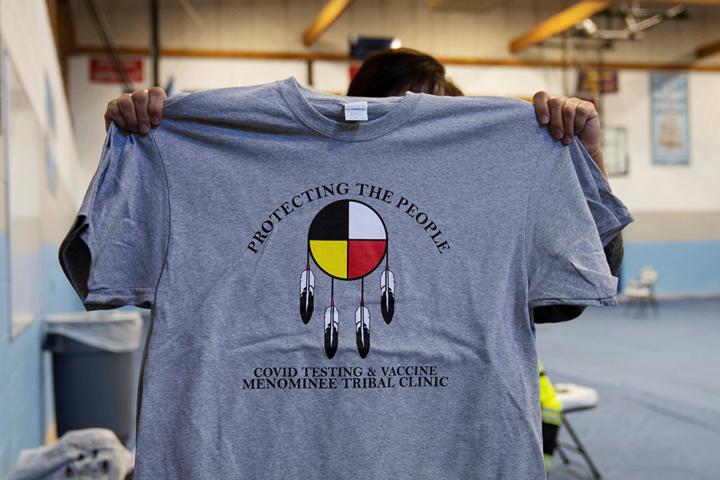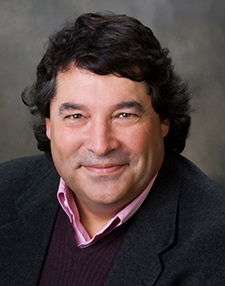 |
Canku Ota
|
 |
|
(Many Paths)
|
||
|
An Online Newsletter
Celebrating Native America
|
||
|
March 2021 - Volume
19 Number 3
|
||
|
|
||
|
Amid COVID-19, A
Minnesota Organization Develops A DIY Will For Native Americans
|
||
|
by Solomon Gustavo -
MinnPost Staff Writer
|
||
|
The issue of estate
planning, especially for Native land owners, has become especially
important due to the disproportionate impact of COVID-19. The CDC
says Native Americans die from COVID-19 at nearly twice the rate
of white people.
As statistics show Native Americans dying from COVID-19 at nearly twice the rate of white people, a Little Canada-based nonprofit has developed a way for those who own tribal lands to write a do-it-yourself will, free of charge. Created by the Minnesota-based Indian Land Tenure Foundation along with other Indian legal services groups, the organization’s “Will-in-a-Box” offers an easy way for Native American landowners in three states — Minnesota, Montana and Oklahoma — to ensure their lands stays in the hands of Native people. The issue has become especially important due to the coronavirus pandemic and the disproportionate impact COVID-19 has had on Native people. The CDC says Native Americans die from COVID-19 at 1.8 times the rate of white people. But the tool also speaks to the intensely complicated nature of probate for those who own tribal land. When an Indian territory landowner dies without a will, the question of who should inherit their property isn’t sent to a state probate court where the person died, but a federal probate judge, who presides over a Byzantine and often lengthy process of settling the estate. “A case in federal probate court can take years,” said Cris Stainbrook, president of the Indian Land Tenure Foundation. The process is a legacy of the Dawes Act, also known as the General Allotment Act, passed in 1887, which put reservation land in a trust that the federal government owns, with individual tribes and landowners holding title to the land. The Allotment Act also put the federal government in charge of final decisions regarding land use and inheritance. “It was a blanket declaration painting individuals and tribes as being incompetent to handle their own affairs,” said Stainbrook.
In the federal probate courts, a common ruling is one Stainbrook
calls “splits.” Half of the estate goes to the spouse
and the children get the other half. ‘If you have nine kids,
they would get one-eighteenth of the interest,” Stainbrook
said, and the process gets repeated with each successive generation,
so that “by the time you get through seven, eight, 10 generations,
that land has been divided into very small pieces. A will can avoid some of those situations, which is where Stainbrook and the Indian Land Tenure Foundation come in. The free “Will-in-a-Box,” allows a tribal landowner to fill out a series of forms on the ILTF’s website, which are then reviewed by the organization’s legal team. The documents still have to go to a federal probate judge, who validates the will, but it speeds up the process. Currently, the service is available for American Indians who own trust land in Minnesota, Montana, and Oklahoma, though the ILTF is working on adding to that list. ILTF, which offers other services around Indian land recovery and management, began in 2001 with a $20 million endowment from the Northwest Area Foundation. ILTF is able to fund the free Will-in-a-Box program, which launched last year, through similar contributions from businesses, individuals, Indian nations, and other foundations. The Native people in Minnesota who often seek their estate planning services are those on Minnesota’s various reservation land, and adults living in the Twin Cities making arrangements for their parents. “I think, especially for some of those reservations harder hit (by the pandemic), we really need to rack these up,” said Stainbrook. “The only real way we have to do that right now is with the Will-in-a-Box.” He also urges those who own trust land outside where the Will-in-a-Box is currently valid to fill out the free form, since people can have an attorney in their state make adjustments, usually at much lower costs than starting a will from scratch.
Solomon Gustavo covers local and regional government for MinnPost.
Indian Land
Tenure Foundation (ILTF) |
||||
|
|
|
|
||
|
|
||
| Canku Ota is a free Newsletter celebrating Native America, its traditions and accomplishments . We do not provide subscriber or visitor names to anyone. Some articles presented in Canku Ota may contain copyright material. We have received appropriate permissions for republishing any articles. Material appearing here is distributed without profit or monetary gain to those who have expressed an interest. This is in accordance with Title 17 U.S.C. Section 107. | ||
|
Canku Ota is a copyright ©
2000 - 2021 of Vicki Williams Barry and Paul Barry.
|
||
 |
 |
|
|
The "Canku
Ota - A Newsletter Celebrating Native America" web site and
its design is the
|
||
|
Copyright ©
1999 - 2021 of Paul C. Barry.
|
||
|
All Rights Reserved.
|
||

